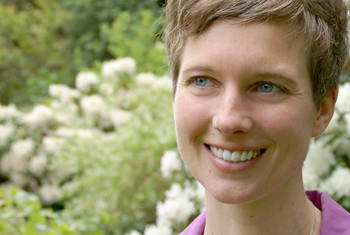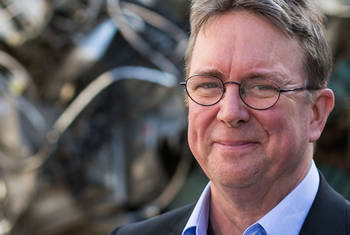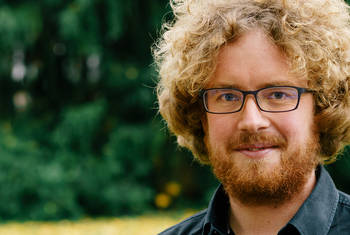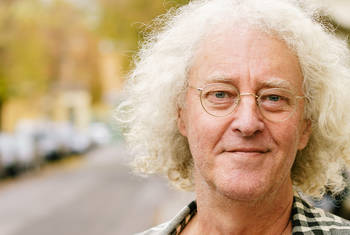Sybille Unsicker How Do Forest Trees Defend Themselves Against Insects Under Natural Conditions and Is This Process Affected by Forest Management?
Sybille Unsicker is Principal Investigator at the Max Planck Institute for Chemical Ecology in Jena (Germany) and an associated member of the Terrestrial Ecology Research Group at Technical University Munich. Her research focuses on the feeding ecology of herbivorous insects and the chemical ecology of poplar. She is a member of the Society for Tropical Ecology, the Ecological Society of America and the Ecological Society of Germany.
Area of Research
Biochemistry
since 2008
Group Leader "Chemical Ecology of Anti-Herbivore Defenses in Poplar"
Max Planck Society (more details)
Max Planck Institute for Chemical Ecology
2006-2008
2007
PhD in Ecology
Friedrich Schiller University Jena (Friedrich-Schiller-Universität Jena)
Thesis “Plant-Insect Interactions in Grasslands Along a Gradient of Plant Species Diversity”
2002
Diploma in Biology
University of Würzburg (Julius-Maximilians-Universität Würzburg)
Thesis “Herbivorous Insects in Arboreal Systems of the West African Savanna, Comoé National Park, Ivory Coast”
- Annals of Botany
- Biological Journal of the Linnean Society
- Canadian Journal of Zoology
- Chemoecology
- Ecology Letters
- Entomologia Experimentalis et Applicata
- European Journal of Entomology
- European Journal of Forest Research
- Journal of Animal Ecology
- Journal of Chemical Ecology
- Journal of Ecology
- Netherlands Organisation for Scientific Research (NOW)
- Oecologia
- Plant Biology
- Plant Cell and Environment
- Plant Signaling & Behavior
- PloS ONE
- Swiss National Science Foundation
- Trends in Plant Science
- Ecological Society of Germany, Austria and Switzerland (Gesellschaft für Ökologie) (GFÖ)
- International Society of Chemical Ecology (ISCE)
- The Ecological Society of America (ESA)
Prizes
- International Max Planck Research School Certificate (2007)
- “BundesUmweltWettbewerb” Third Price (Nationwide) (1994)
Fellowships
- International Max Planck Research School (IMPRS) Membership (2004-2006)
- DAAD Scholarship for the Study at Duke University, Durham, USA (1998-1999)
- Gerhard and Ellen Zeidler Foundation: Funding for a PhD Position for One Year (2013)
- LUBOM Funding for Scientific Consumables, Innovationsfond Thüringen (2004)
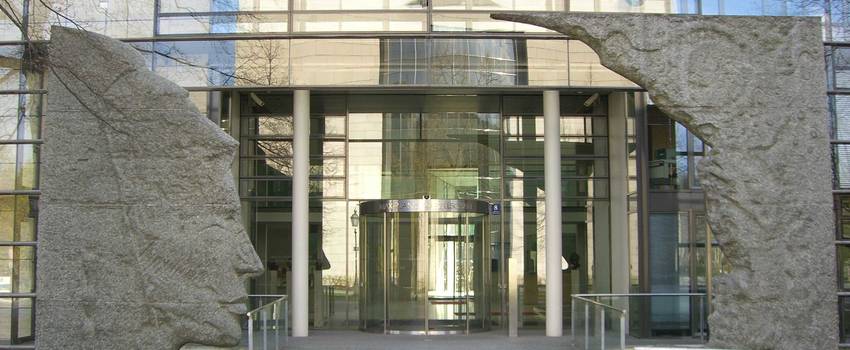 © Maximilian Dörrbecker
© Maximilian Dörrbecker
Max Planck Society
"The Max Planck Society is Germany's most successful research organization. Since its establishment in 1948, no fewer than 18 Nobel laureates have emerged from the ranks of its scientists, putting it on a par with the best and most prestigious research institutions worldwide. The more than 15,000 publications each year in internationally renowned scientific journals are proof of the outstanding research work conducted at Max Planck Institutes – and many of those articles are among the most-cited publications in the relevant field." (Source)
Institute
Max Planck Institute for Chemical Ecology
"The Max Planck Institute for Chemical Ecology in Jena investigates the role, diversity and characteristics of chemical signals which control the interactions between organisms and their environment. Scientists from the fields of ecology, biochemistry, organic chemistry, entomology, ethology, and insect physiology work closely together in the Institute in order to understand the complex system of chemical communication. Their research focuses on the co-evolution of plants and insects. The fact that plants usually spend their entire lives in one place forces them to use effective strategies to guarantee that their offspring are spread and also to protect themselves against pests and diseases. To this effect, plants have developed a wide range of chemical signalling compounds that enable them to optimise their adaptation to their respective environments. These so-called allelochemicals are used to, among other things, attract pollinators, fend off herbivores and pests, fight diseases and keep unwelcome competitors away. Plants also synthesise mixtures of many organic substances that have a deterrent or toxic effect on herbivores. As a countermeasure, insects that feed on plants adapt accordingly and, for their part, try to overcome plant defences." (Source)
Map
When plants are being attacked by herbivore insects, they protect themselves by emitting volatiles that attract enemies of the insects. This has already been well investigated in greenhouse settings and on smaller plants but very little research has been done under natural conditions and on trees. In this video, SYBILLE UNSICKER explains how the research team studied this pattern in the forest ecosystem while also controlling for the influence of different land management regimes on the so-called “indirect plant defense”. The results show that predatory insects were indeed more attracted to the trees which were infested with caterpillars during the experiment. Surprisingly the forest management regime had no influence on the attraction of natural enemies.
LT Video Publication DOI: https://doi.org/10.21036/LTPUB10195
Insect Attraction to Herbivore-Induced Beech Volatiles under Different Forest Management Regimes
- Martin M. Gossner, Wolfgang W. Weisser, Jonathan Gershenzon and Sybille B. Unsicker
- Oecologia
- Published in 2014





